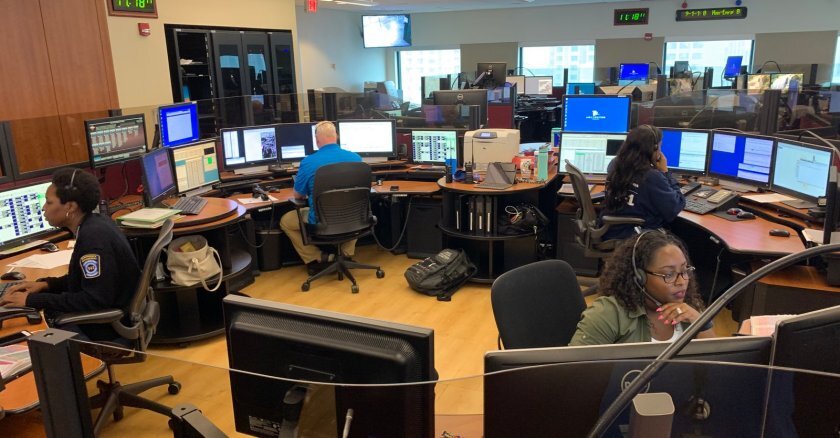Regional leaders decided Thursday to make a formal request to Motorola, which makes the equipment used in the metro’s 911 system, to research and develop a way to set up an auto-attendant in Kansas City as requested by police officials.
With Kansas City police fielding more 911 calls, the Board of Police Commissioners last month called for an emergency meeting at the Mid-America Regional Council, known as MARC, which administers the 911 system, to hash out new ways for calls to be handled.
The Kansas City Police Department currently answers all 911 calls in the city. In an effort to decrease the amount of time callers wait for dispatchers and to improve officer response times, the police board wants residents to be able to select, through an auto-attendant, if they are trying to reach police, the fire department, emergency medical services or non-emergency assistance.
Under the existing system, a caller to Kansas City’s 911 talks to a dispatcher, but may be put on hold before they can describe their emergency. That dispatcher then routes the call to the appropriate agency.
Other cities, such as St. Louis, use an auto-attendant feature on their single-host server. But Kansas City’s multi-host system is more complicated, so Motorola is trying to customize software to make an auto-attendant feature work here.
Motorola believes it has the solution, but the research and development could take months, potentially into early next year. If it works, Kansas City leaders say, it would be the first such 911 system in the country.
“There are a lot of unknowns,” said Hassan Al-Rubaie, MARC’s 911 technical services manager. “It’s uncharted territory for us.”
If all goes well, Al-Rubaie added, he could see Motorola marketing the technology to other 911 systems across the country.
There is no timeline for when Motorola will complete its work. It is also unclear what implementing the system might cost, though a KCPD official said it could be tens of thousands of dollars annually.
Questions among law enforcement leaders about the technology remain, such as how it will work if someone calls 911 in crisis and can’t select an option on the auto-attendant.
The decision of whether to implement the changes will ultimately be made by Kansas City. A KCPD spokesperson said the department continues to “explore any and all options to optimize 911 functionality and operations to best serve the community.”
Wait times have been a growing issue for the Kansas City Police Department.
The average 911 hold time is now 60 seconds, though some callers — including in the case of a man severely beaten outside Arrowhead Stadium before a Luke Combs concert — have been on hold much longer.
Call takers are doing more with less: In June, KCPD fielded 23,000 more calls compared to that month last year, while each shift of the communications unit was working, almost daily, below minimum staffing requirements.
The unit is authorized to have 109 positions, but as of last month, it had 28 vacancies. Some candidates have gone to other agencies, where the pay is better than KCPD’s starting hourly rate of $20.48.
Tamara Bazzle, a shift supervisor, told police board members in June that the unit was maintaining service through more than 6,000 hours of overtime for employees, former employees and independent contractors.
Mayor Quinton Lucas, a member of the police board, called the substantial amount of overtime “concerning.”
Before she spoke to the board, Bazzle worked a shift during which the call volume was “non-stop” and “insane.” Some employees have been burnt out in the stressful job, and supervisors are jumping in to help take calls.
With an increase in homicides and the city on pace to suffer its deadliest year yet, officers are also spending more time at the scenes of violent crimes, which decreases the number of officers available to send to other calls.
©2023 The Kansas City Star. Distributed by Tribune Content Agency, LLC.











